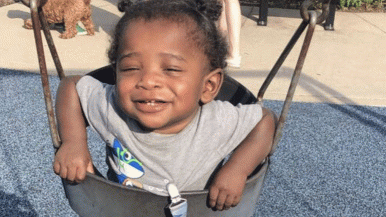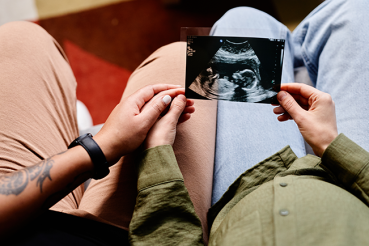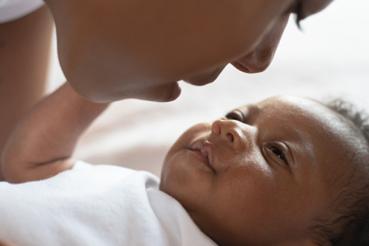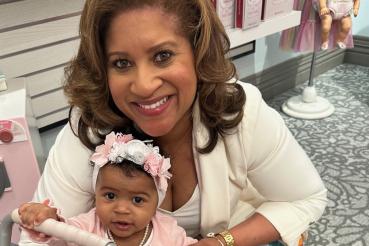Chade Weatherspoon did not know what HELLP syndrome was — until she almost died from it. Now she wants others to be aware of the signs and symptoms.
While pregnant with her second child, Chade was diagnosed with preeclampsia, a condition that occurs during pregnancy and is characterized by high blood pressure, swelling of the hands and feet, and protein in the urine. Preeclampsia affects the blood flow to the placenta, and as she approached her seventh month of pregnancy, the doctor said she needed an emergency cesarean section for the safety of the baby.
“I was terrified,” Chade says. “I was so afraid all I could do was pray.”
At 29 weeks, she gave birth to a “wonderful baby boy named Caleb.” Weighing just 2 pounds and 4 ounces, he was rushed to the neonatal intensive care unit, or NICU, for immediate treatment. “It’s the scariest thing to know that your baby is premature and his chance of life is fifty-fifty,” she says.
Chade was released from the hospital while Caleb remained hospitalized. “I was crushed, hurt and angry at myself,” she says, because she was unable to carry the baby to term “to give him a chance to be healthy. All things went in and out of my mind.”
Two days after her release from the hospital, Chade became ill. “I wasn’t myself,” she remembers. “I didn’t eat. I was so tired. I started to throw up, and my urine was very dark. I was in pain.” Her mother drove her to RUSH Copley Medical Center and she was immediately admitted. Diagnosed with HELLP syndrome – hemolysis, elevated liver enzymes and low platelet count – she was taken to the intensive care unit in critical condition. Her blood count was so low that she needed eight blood transfusions and five platelet transfusions. Her kidneys were failing and her liver was failing, and she was examined by “all kinds of specialists.”
Hospitalized for three weeks, Chade received the treatment and care she needed to recover. “I had a great team at RUSH Copley Medical Center,” she says. “If it wasn’t for them, I wouldn’t be here.”
Caleb was released from the hospital about a month after his mother. “He fought hard and was able to come home,” she says. “God has truly blessed me.”
Caleb is now a happy 5-year-old who loves cars, trains and playing outside, and Chade wants to share her story and experience with HELLP syndrome to help other pregnant women.
Tips to stay healthy during pregnancy to avoid HELLP syndrome
HELLP syndrome affects fewer than 1% of women, according to Stephanie Simmons, MD, who specializes in obstetrics and gynecology with RUSH Copley Medical Group. Simmons, who treated Chade and delivered Caleb, said the condition can occur in patients with preeclampsia or eclampsia. Warning signs include hand and facial swelling, right upper abdominal pain, nausea with or without vomiting, visual changes and headache, which are also symptoms of preeclampsia.
“There is no known cause for HELLP syndrome, so there is no clearly identified way to prevent it,” Simmons says. She advises patients to do what they can to stay healthy before and during pregnancy to avoid complications like HELLP.
• Strive to maintain a healthy weight prior to pregnancy and gain within the recommended weight range during pregnancy.
• Stay active and exercise regularly and follow a healthy diet before and during pregnancy.
• Given that HELLP syndrome is associated with preeclampsia in many cases, patients should work to maintain a healthy blood pressure prior to becoming pregnant and have any hypertension under control prior to pregnancy.
• Have regular prenatal visits during pregnancy.
• Inform your health care provider about previous high-risk pregnancies or family history of HELLP syndrome, preeclampsia or other hypertensive disorders.
• Understand the warning signs of HELLP and report them to your health care provider immediately.




